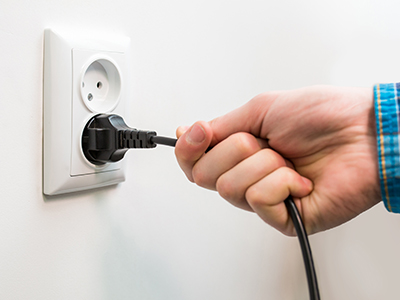
It is now the norm to see passersby glued to their phones as they make their morning trek into work. And when those employees head home, they are often unable to “leave work at the office” as they continue to respond to evening messages, texts, and emails. Recent studies have shown that employees who spend time communicating about work matters and engaged in other work activities outside of working hours are less productive in the office and have a worse quality of sleep. Now, a novel bill introduced before the New York City Council seeks to end that practice by giving workers the ability to pull the plug on work communications during non-work hours.
Under the proposed “right-to-disconnect” bill, private employers in New York City with ten or more employees would not be able to “require an employee to access work-related electronic communications outside of such employee’s usual work hours, not including overtime, except in cases of emergency.” The plain language of the proposed bill suggests that employees could choose to check or respond to electronic communications but could not be “required” to do so. Employers would also be obligated to adopt a written policy that includes information identifying the usual work hours for each type of employee and the employer’s categories of paid time off, including vacation days, personal days, and sick days to which employees are entitled.
The bill does carve out certain exceptions for certain types of workers, though, and it explicitly states that it does not apply to: (1) “any employees whose terms of employment require them to be on call twenty-four hours a day on days when they are working, in which case it shall only apply on such employee’s days off, including paid time off”; (2) work study programs; (3) employees compensated through qualified scholarships; and (4) independent contractors. For employers who violate an employee’s right to disconnect, employers would face cumulative penalties. The employer would be subject to penalties of at least $250 for each instance of an employee being required to access work-related electronic communications outside of the standard work hours, as well as potential penalties for subsequent violations, unlawful retaliation, or unlawful discharge.
Currently, the New York City Committee on Consumer Affairs and Business Licensing is considering the bill. Interestingly, the sponsor of the bill, Councilmember Rafael L. Espinal, Jr., said that he modeled the legislation after the French law enacted last year giving employees a “right to disconnect” and that requires French employers to implement rules governing work-life balance and reasonable use of digital tools.
If the bill passes in New York City, it may be the first of its kind in the United States, and New York City employers will need to reevaluate which job responsibilities are critical to the smooth operation of their business and whether employees are able to wait to respond to communications until the next work day. To explore creative solutions for maintaining company culture and employee satisfaction while also ensuring legal compliance with the bill, employers are encouraged to contact their employment counsel.

